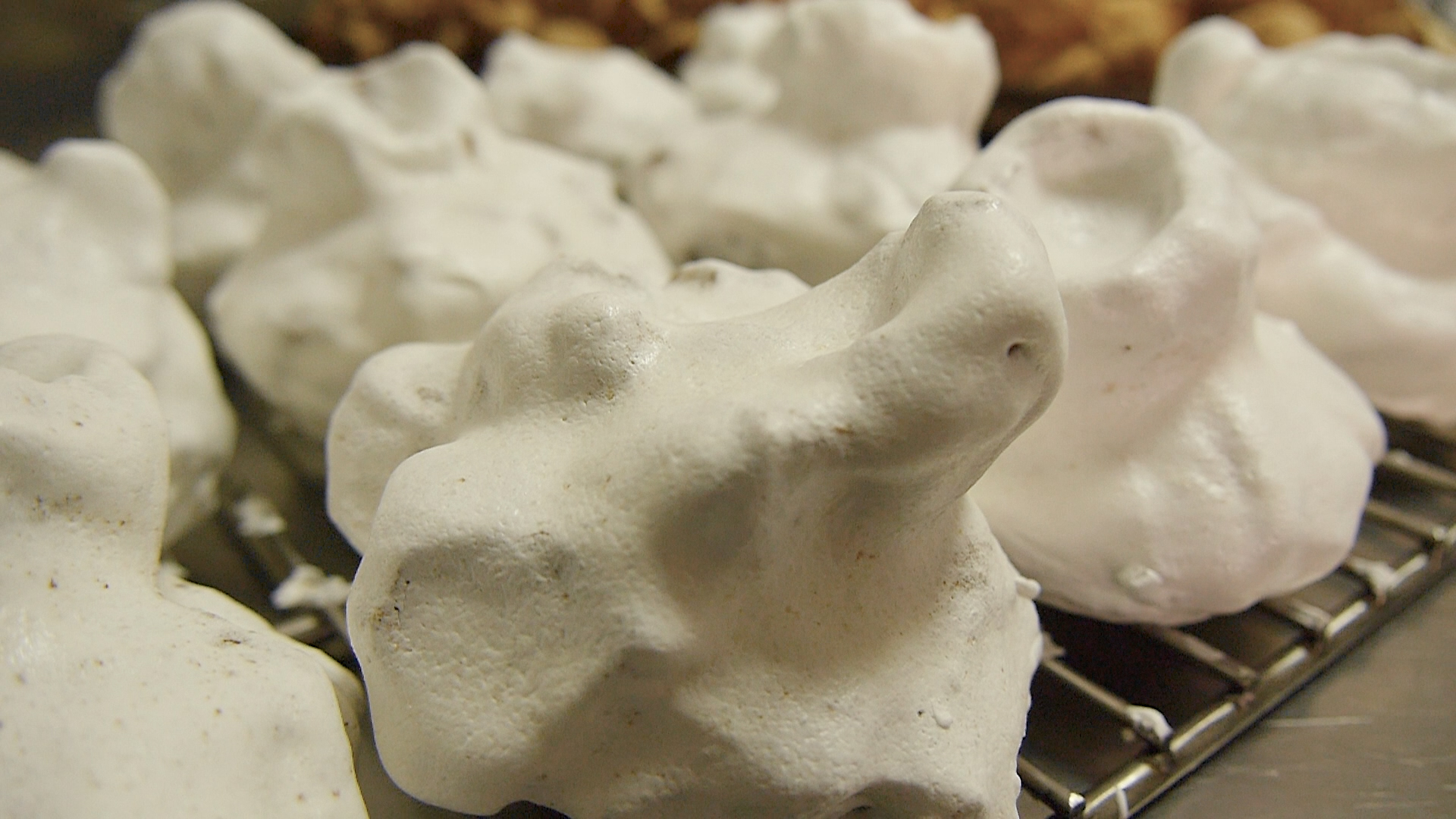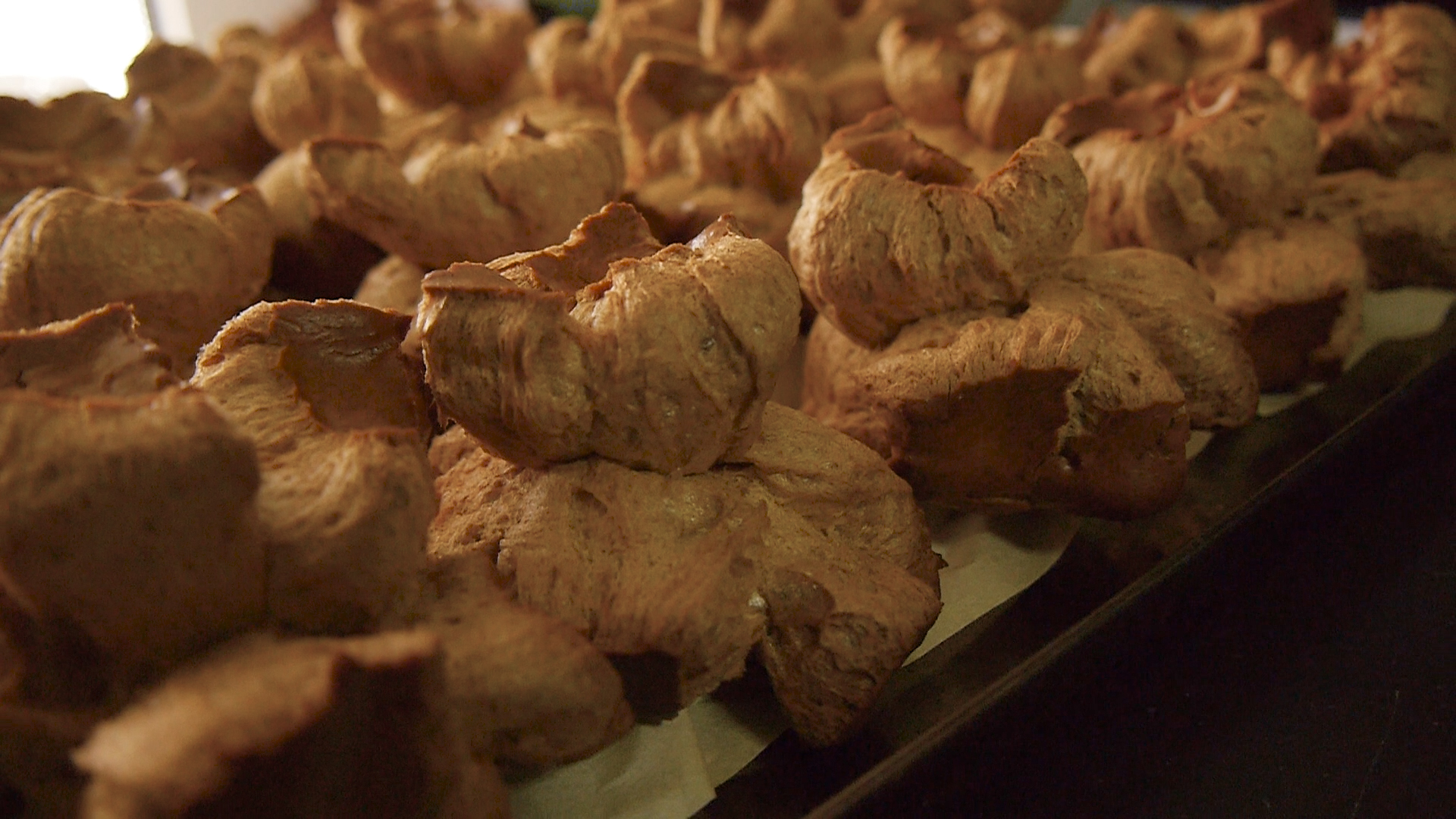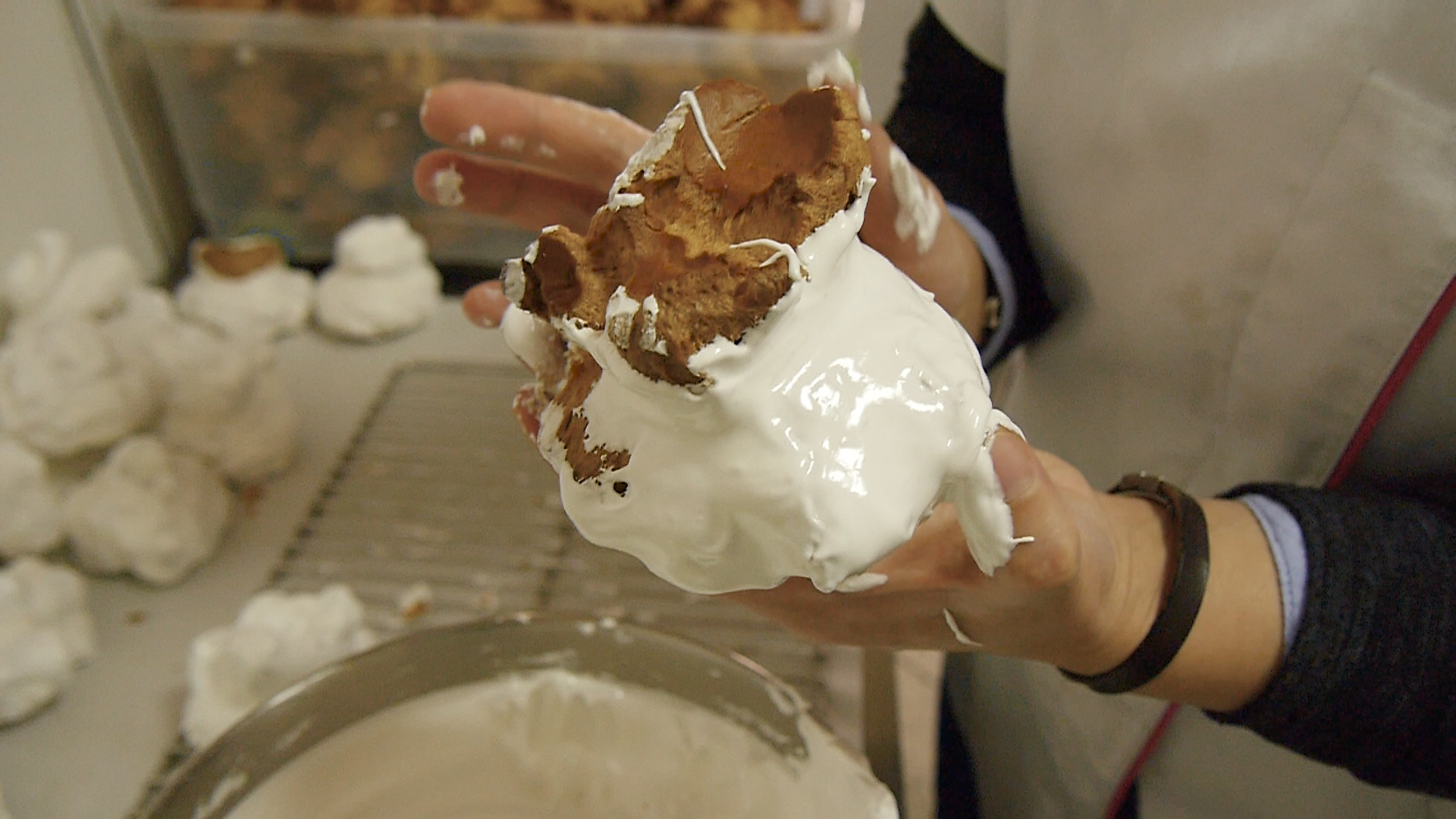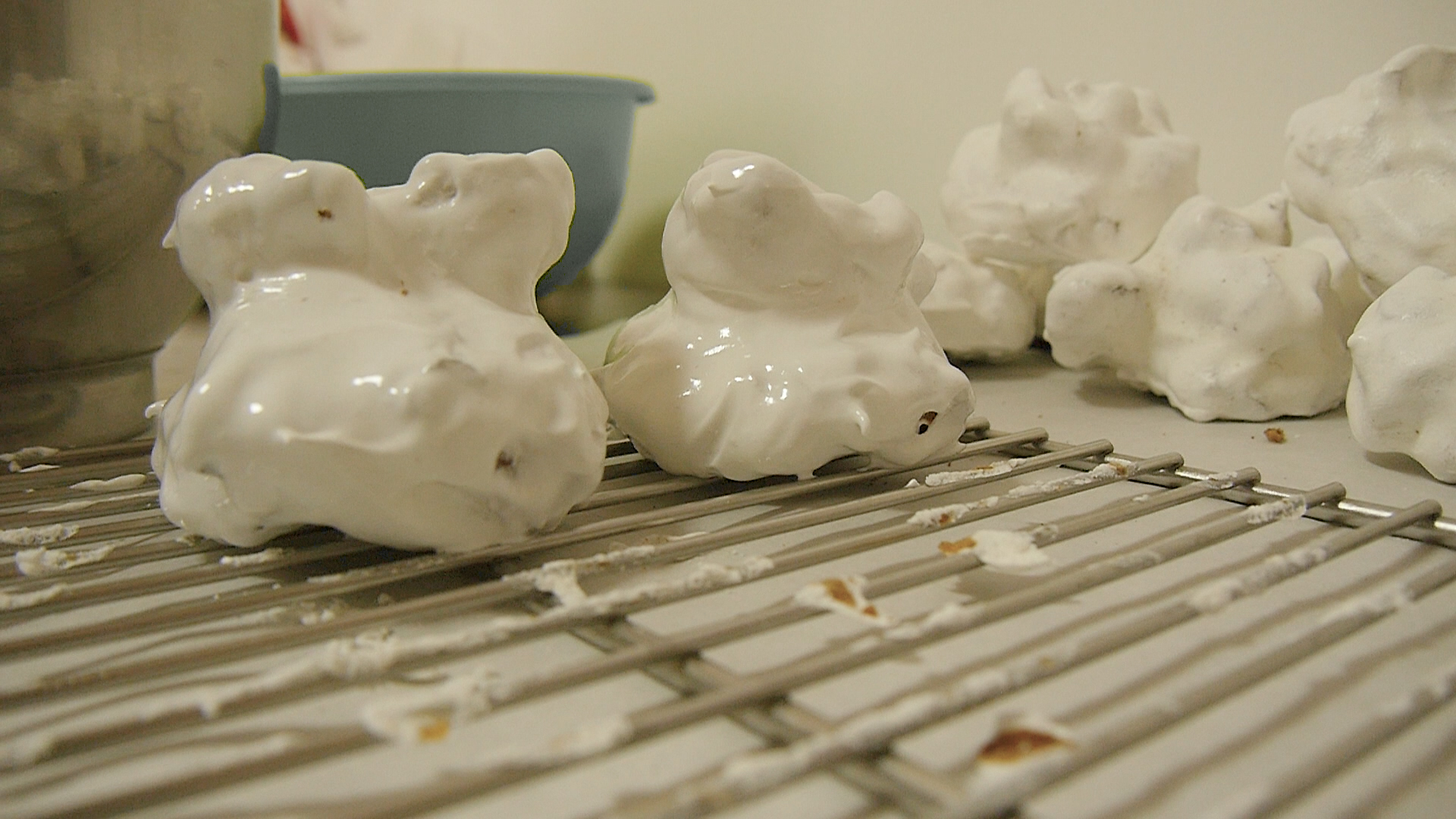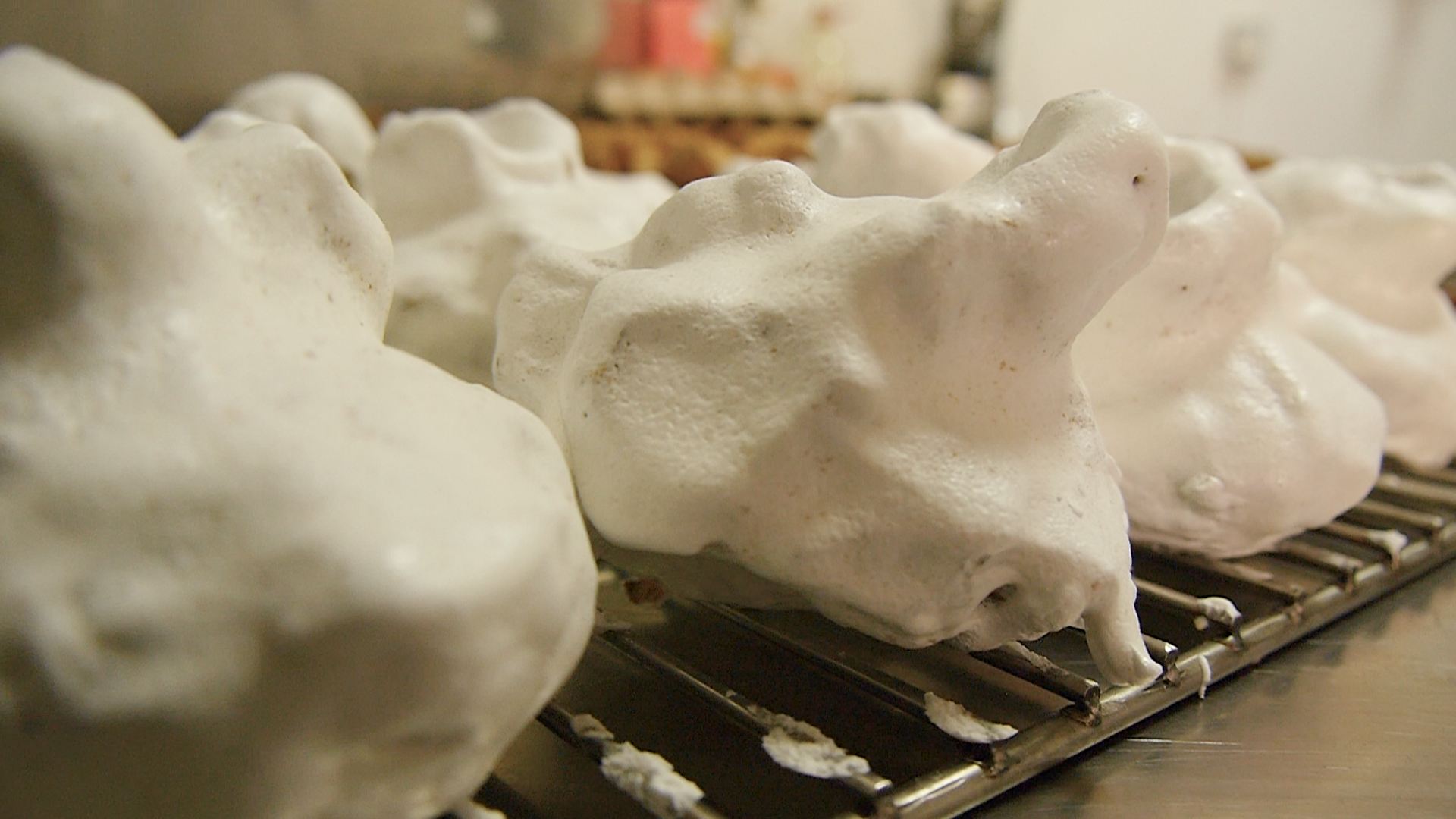A variedade de cavacas em Portugal é imensa. É um doce popular, no sentido em que está muito difundido, mas popular também pela sua história, pois é um doce com origem no povo, nas receitas com poucos ingredientes, entre os quais sempre a farinha. Em Mação, era costume serem apresentadas cavacas até nos casamentos. Em todos os cantos do país se fazem, até com nomes diferentes, e todas têm o seu aspecto e sabor.
O tempo menos frio começa a ajudar quem faz este tipo de cavacas, porque é mais fácil agora secá-las. Se passarmos por estes dias na loja de Vera Fernandes, Segredos de Mação, encontramos o docinho tal como era feito pelas suas avós, incluindo na aplicação manual das claras batidas com açúcar. Mais tradicional que as cavacas de Mação, não há.
***
There is an enormous variety of “cavacas” in Portugal. It is a popular sweet, in the sense that it is very widespread, but also because of its history, since it is a sweet of common folk, a recipe with few ingredients, onde of which basic flour, as it always is the case in such sweets. In Mação, people used to have cavacas even in weddings. They are made in all corners of the country, some with different names, and all have their particular appearance and flavor.
Now that the weather is getting less cold, it is easier to make these cavacas, since they now dry faster. If we pay a visit to Vera Fernandes’ shop, Segredos de Mação, we’ll find cavacas as her grandmother made them, including the manual application of whipped egg whites with sugar. You can’t find anything more traditional than the cavacas of Mação.
PUBLICIDADE

